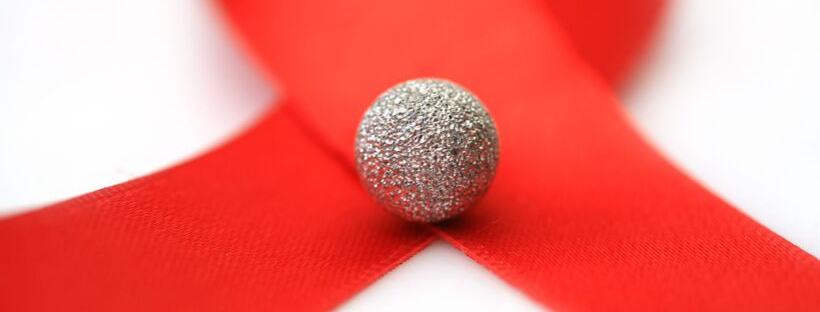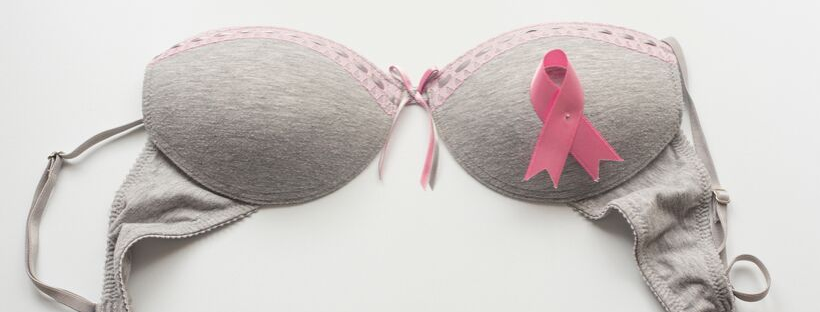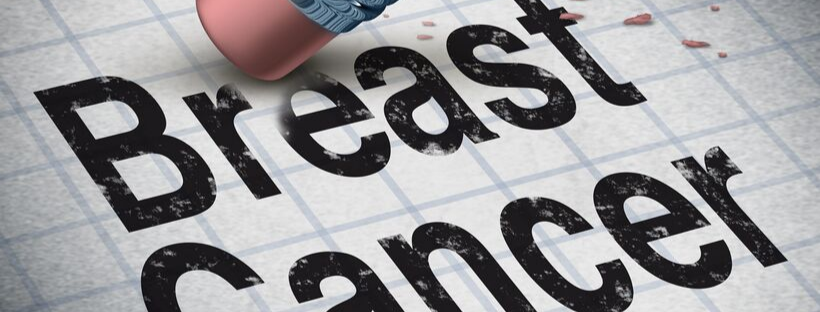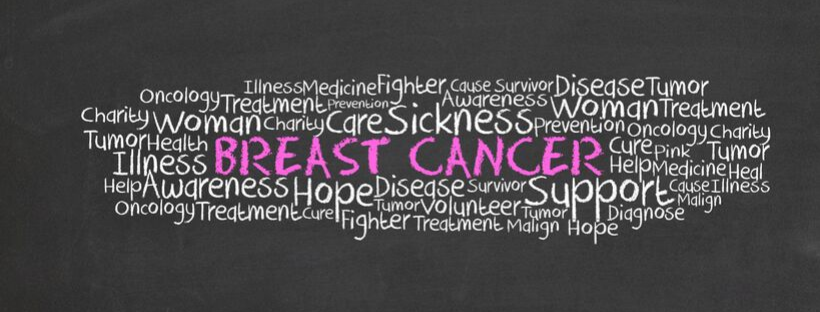Last week someone asked me why I had not yet written a word on my blog about my brush with early stage breast cancer. My answer was simple: I didn’t think there was much of a story to tell, I didn’t believe it could help others, and I was also afraid my writing could later backfire. You know, with the legal system being so incredibly fair, right?
But the reality is that I was simply making excuses.
As expected, my friend of more than 20 years gave me a ‘that’s such bullshit excuse’ kind of face. Seriously, what was I waiting for to write about my experience? Wasn’t writing to help others my passion? I guess in a sense I was afraid to share my story because that would make it real. I thought that if I kept it to myself, I would be able to contain it and it wouldn’t explode. It hasn’t yet, and thankfully, I don’t think it will at this point.
The truth is that since I started a new job that turned into three, I haven’t had a breathing minute to write or do anything outside of work. Any free time I’ve had since September of 2018 has been dedicated to my kids, my home, and keeping an eye on my health… Heck, I haven’t even finished my fourth book! But I knew that writing about my experience with early stage breast cancer could help others, and the conversation with my friend made me realize that sometimes telling a story in its simplest form – without enigmas or complex language – is the best way to get the message out there to others.
After all, I have learned valuable lessons from the countless personal articles I have read, and the many conversations I’ve had with people who, like me, love to share their life stories hoping they could help others. Some of these narratives have hit the spot at a time in my life when I needed it most, and often helped me navigate through difficult personal obstacles.
I also remembered the thousands of subscribers I’ve had the honor to attract to my blog, and the emails they send expressing gratitude for my openness when writing articles about taboo topics such as Post Traumatic Stress Disorder (PTSD), anxiety, divorce, coparenting, etc. The common denominator in these messages is simply that my articles help them realize or think about their problems from a different perspective, or even realize they had a problem to begin with.
I like helping others, so here it goes…

In March of this year (2019), during one of the most hectic work times I’ve ever had (my boss was traveling for two months), I noticed a ball on my right breast. No, not a tennis ball. No ladies, not one of those either – that would’ve been funny or kind of weird. I felt a ball. Just a ball, a lump, a small, hard, roundish little fucker that felt alien but found a home on the outer side of my right breast. I fondled it for about a week, and then I decided to get it checked.
I have a long history of cancer in my family and tackling the presence of this “thing” full force was the smart thing to do. So, I made an appointment with a doctor, then another doctor, and then two more until I found a good specialist who sent me to get the dreadful mammogram that confirmed the presence of a mass on my right breast. A biopsy was scheduled, and a week or so later the diagnosis was confirmed: I had DCIS (Ductal Carcinoma in Situ), the presence of abnormal cells inside a milk duct in my right breast.
Crap.
I started seeing the doctor with more frequency to better understand my diagnosis and be able to evaluate my options. I kept most of the process to myself and continued to immerse myself into working my three part-time jobs, only sharing relevant information with a few friends and my oldest son. None of it was easy to handle, and I often cried myself to sleep. I didn’t want others to know about the dark clouds in your life.
Despite living in a tell-all social media era, where everyone seems comfortable discussing anything from toenail fungus to vaginal discharge on their posts, at first, I told no one about my cancer, not a soul. I posted no selfies during my first visits and I kept the experience bottled in, driven by a desire to not have cancer identify who I was, or perhaps a fear that sharing the news will make the whole ordeal far more real. I didn’t want flashes of sorrow in people’s eyes and preferred not to hear any solemn ‘hey girl, how are you doing?’ about my situation.
My doctor, who thankfully shares my dark and sarcastic humor, recommended a lumpectomy, a surgical procedure to remove the tumor and any surrounding tissue related to DCIS. Think of it as a surgical removal of one area of the breast. I knew he was correct on his recommendation, but being the stubborn person that I am, I wanted to do more research to see if there were other options. I even debated whether my case should be treated with surgery but rather, be monitored and handled only if the cancer spreads. Ignorance can sometimes be bliss.
I thanked the doctor for his advice and left in a state of shock, but I didn’t want to tell anyone about it. It was a Tuesday and I was very sad and confused, but somehow, I managed to drive to the beach and sat on the sand to ease my mind with the sound of the waves crash. Few things are as soothing as the sound of the ocean, so I sat there, and I sobbed. I cried so much I thought a river would form around me and drown me, but I was just drowned in my own sad emotion. ‘Shit! Why me?!’ I asked myself out-loud. I was mad. I was angry as hell that my life was so hard, and I had to continue to endure hardship despite everything I had experienced in the past. I’ve been through a lot; you’ll know that if you’ve read my blog posts.
I sat on the sand for about an hour crying inconsolably, not just because I was sad, but because I was pissed off. Then, the most beautiful thing happened: out of nowhere, a dog came and sat next to me. He didn’t ask for pets or belly rubs, he didn’t want the apple I had in my bag, or the dog treats I carry around for my dogs. No, he just sat next to me and it seemed as if he was enjoying the view and sound of the waves crashing on the shore.
I looked around to see if a human was running in my general direction looking for their fury friend, but nothing, no human around. I took my phone out to take a selfie with him, but my action was halted by my appearance. I don’t wear much makeup, but the little mascara I applied earlier that day was now a sort of a droopy Picasso running down my cheeks. Geez! I looked like someone had given me two black eyes.
I didn’t take the selfie with the dog but started laughing at my rambling brain. Here I was, sitting by the beach with the recent news that I had to chop a portion of my breast off because I had early stages of cancer, and all I was worried about was looking decent on a selfie with a stranger’s dog. My priorities were really screwed up. The dog looked at me – I think he was laughing with me – and started licking my face. It was a magical moment that helped me snap out of my cancer news misery, and I will remember him for a long time. Then he got up and left, went to pee by a garbage can, and started running towards what appeared to be his human, someone who was sitting by the boardwalk’s limestone wall. I waved, the human waved back. The dog never looked back. Must have been my smeared makeup. I guess I’ll never know.
I sat there a little longer contemplating my situation and my options. I thought about the strange occurrence that a random dog would come to sit next to me almost as if he knew I needed company. That thought lingered in my brain for a while, and instead of enjoying the moment, I defaulted to self-pity again… Why me, why now? There were several other people at the beach, but he came to me. He licked me. I was special. At least to the dog at that moment, I was. He cheered me up, as dogs usually do. I love dogs. I finally stood up, dusted the sand off my jeans, grabbed my shoes, bag, and the towel now covered in dog hair, and walked to my car.
Rather than thinking about my boobs, early stage cancer, a lumpectomy, or anything related to my health, I thought about the dog all the way back to my house. Dogs are awesome.

A week after, I decided to share the news with others. The first person I unleashed the bad news on was my oldest son who is 24 years old. At first, he thought I was joking because he thought I looked too healthy for a person with cancer. I explained that cancer has different stages, and this was basically stage 0 breast cancer. He looked at me a bit confused and in disbelief, but immediately replied ‘well mom, if anyone can kick cancer’s ass, it’s you.’ That was exactly what I needed to hear, and the first time I knew that I could beat the crap out of this stage zero cancer if I did the right research and found the right options.
After sharing the news with my son, I then told my best friend via iPhone facetime, of all things. We facetime a lot. I work from home, and she works for the local government, so facetiming is almost like working together but without the rules and regulations of an office. Almost. Most of the time she must wear her headphone because I curse too much. She wasn’t happy about the news of the diagnosis, and even less happy I had withheld the news from her and the following statement that I was going to handle this my way. But just like my son, she respected my decision, and after some bitching, told me she’ll be there for me. She always is.
A month or so later I mustered the nerve to share the news with some of my coworkers, mostly to let them know the days I was going to be out of reach or have limited access to my computer. I like to think that I serve as the company’s “problem solver,” so giving them a heads-up of my absence was the right thing to do. They were very supportive, helpful, and cheered me up the whole time.
The next few weeks after disclosing the news and recommended lumpectomy to those who mattered were bleak, to say the least. The decision to keep the news of the diagnosis quiet for months was frightening and isolating, but it was my way of managing this new trauma in my life. I slept little, worked way too much, and ate more than I was supposed to, gaining a solid 10 pounds which now, of course, is difficult to shed.
When my mood continued to be gloomy, I reached out to a few people whom I knew had brushes with cancer or family members who had been diagnosed. Those interactions helped me get a clearer picture of what I was going through and what to expect. Up until those conversations, the thought of dying overpowered my thought processes, and the ‘one day at a time’ life approach was all I could manage.
I went back to my doctor and spoke with him about the lumpectomy. Based on conversations with cancer survivors, I also discussed the possibility of a mastectomy if he found more than just a lump during the surgery. I didn’t want to have this worry ever again, so I opened the conversation about a mastectomy as soon as I could. My doctor was adept at explaining bad news and difficult health concepts in a straightforward manner, and I was grateful to be able to ask questions my own way…
- Will my right breast look like a cookie cutter shark took a bite out of it?
- Will my hair fall and I will look like a bad version of Kojak? If so, do I get to choose my lollipop color?
- If I had to do a mastectomy, will I have to hide two balls inside my bra to pretend I still had breasts? I surely didn’t have money to do reconstructive surgery and my insurance didn’t cover cosmetic surgeries.
I had lots of oddball questions and he was patient and answered all of them, laughing along the way with my dark and sarcastic humor. I left his office feeling a little better about this imposed stage in my life, but the fear lingered, and I was not happy to endure more hardship. Throughout the years, I’ve come to understand that some people must serve as suffering buffers for others, because I cannot find a logical explanation of why so many bad things happen to good people all the time.

I was not sure what I was more afraid of, the cancer itself or the thought of my children roaming this earth without my protection, should I expire. I’m pretty sure it was the latter and what eventually fueled my decision of going forward with the surgery. I finally scheduled the procedure for two weeks from the last doctor visit, making sure I had the double mastectomy paperwork ready, just in case. I was determined to continue to be present for my kids, boobs or not.
But as it generally happens in my life, surgery plans didn’t go as scheduled. Due to a car accident that left a dent in my pocket and my bank account in single digits, I was forced to reschedule the surgery to take care of my vehicle’s repairs. I needed $2,500 for the insurance copayment, and I was broke and too damn proud to borrow money from anyone. My mood was not the greatest during those days. Being a single mother of two, broke, and with early stage breast cancer was not really where I thought I’d be at this age. But if I have learned anything in this hectic game called life is that only good things can come out of hardship, it’s all about perception.
I went into my old mental trunk and rummaged around until I found that old pair of balls I have always had, the ones that have helped me stay alive until today. They were a little rusty and unkempt, but still felt solid. I put them on and worked a scheme to get the copayment money sorted out. I saved some money here and there, sold some scuba diving gear, some woodworking tools, and wrote a couple of short articles that helped me earn a little extra cash, and was finally able to schedule the surgery.
When the day of the surgery came, I was scared, but didn’t want anyone around. I was determined to do this alone, and that’s exactly what I did. Most of the nurses at the hospital were incredibly nice. The anesthesiologist had a sense of humor, which came in handy at such a frightening moment for me. I appreciate good contagious laughter, especially when I’m about to go under general anesthesia and possibly wake up boob-less, and the anesthesiologist’s donkey style cackle was the last thing I remember seeing or hearing before falling asleep. He was a very animated man.
But boob-less didn’t happen.
As I started coming back from the effects of the general anesthesia, my mind was interested in one thing and one thing only: boobs. Mine, of course. I lifted my arms and slowly brought my hands towards my chest. Despite my sluggishness, I managed to gently land my hands on my breasts and without a care in the world muttered what sounded like a baby squirrel’s first squeal ‘Heck yeah! I get to keep my girls!’ The whole recovery room area burst in laughter, and my doctor held my arm and said ‘Yes, Diana, yes, you get to keep your girls.’ I thanked him for saving them, and he proceeded to explain the findings and results of my surgery and how I needed to take care of myself moving forward.
Because of the long history of cancer in my family, I am not (yet) completely out of risk for the cancer coming back in my breast or spreading to other parts of my body. I find comfort in knowing that I tackled this instance of it with all I could, dark humor and all, secrets and all. The decision to write about my experience was driven by a desire to help others. I don’t know if this blog post will do that, but I would at least like to send a simple message out to the world: don’t rush to judge a person’s state of mind or behavior. While some people may simply be having a bad day and are acting up, others, like me, are having a rough life but keep pushing forward every single day, not letting their hardship define who they are or how they perform in life. Rather than judging a person because they gave you a rocky reply or snapped at you for something, think about how you can reduce another person’s stress by simply being nice and understanding.
This story has been brought to you by my right breast, who is grateful to be almost complete, and thanks you for reading.
